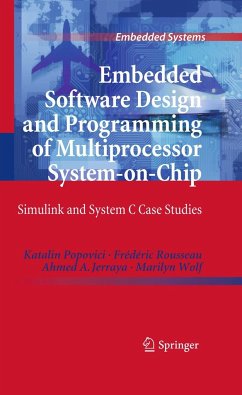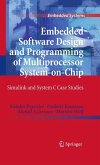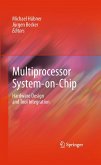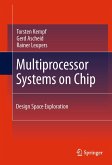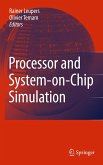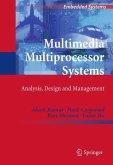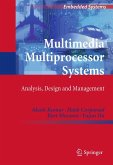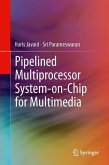Current multimedia and telecom applications require complex, heterogeneous multiprocessor system on chip (MPSoC) architectures with specific communication infrastructure in order to achieve the required performance. Heterogeneous MPSoC includes different types of processing units (DSP, microcontroller, ASIP) and different communication schemes (fast links, non standard memory organization and access).
Programming an MPSoC requires the generation of efficient software running on MPSoC from a high level environment, by using the characteristics of the architecture. This task is known to be tedious and error prone, because it requires a combination of high level programming environments with low level software design.
This book gives an overview of concepts related to embedded software design for MPSoC. It details a full software design approach, allowing systematic, high-level mapping of software applications on heterogeneous MPSoC. This approach is based on gradual refinement of hardware/software interfaces and simulation models allowing to validate the software at different abstraction levels.
This book combines Simulink for high level programming and SystemC for the low level software development. This approach is illustrated with multiple examples of application software and MPSoC architectures that can be used for deep understanding of software design for MPSoC.
Programming an MPSoC requires the generation of efficient software running on MPSoC from a high level environment, by using the characteristics of the architecture. This task is known to be tedious and error prone, because it requires a combination of high level programming environments with low level software design.
This book gives an overview of concepts related to embedded software design for MPSoC. It details a full software design approach, allowing systematic, high-level mapping of software applications on heterogeneous MPSoC. This approach is based on gradual refinement of hardware/software interfaces and simulation models allowing to validate the software at different abstraction levels.
This book combines Simulink for high level programming and SystemC for the low level software development. This approach is illustrated with multiple examples of application software and MPSoC architectures that can be used for deep understanding of software design for MPSoC.

